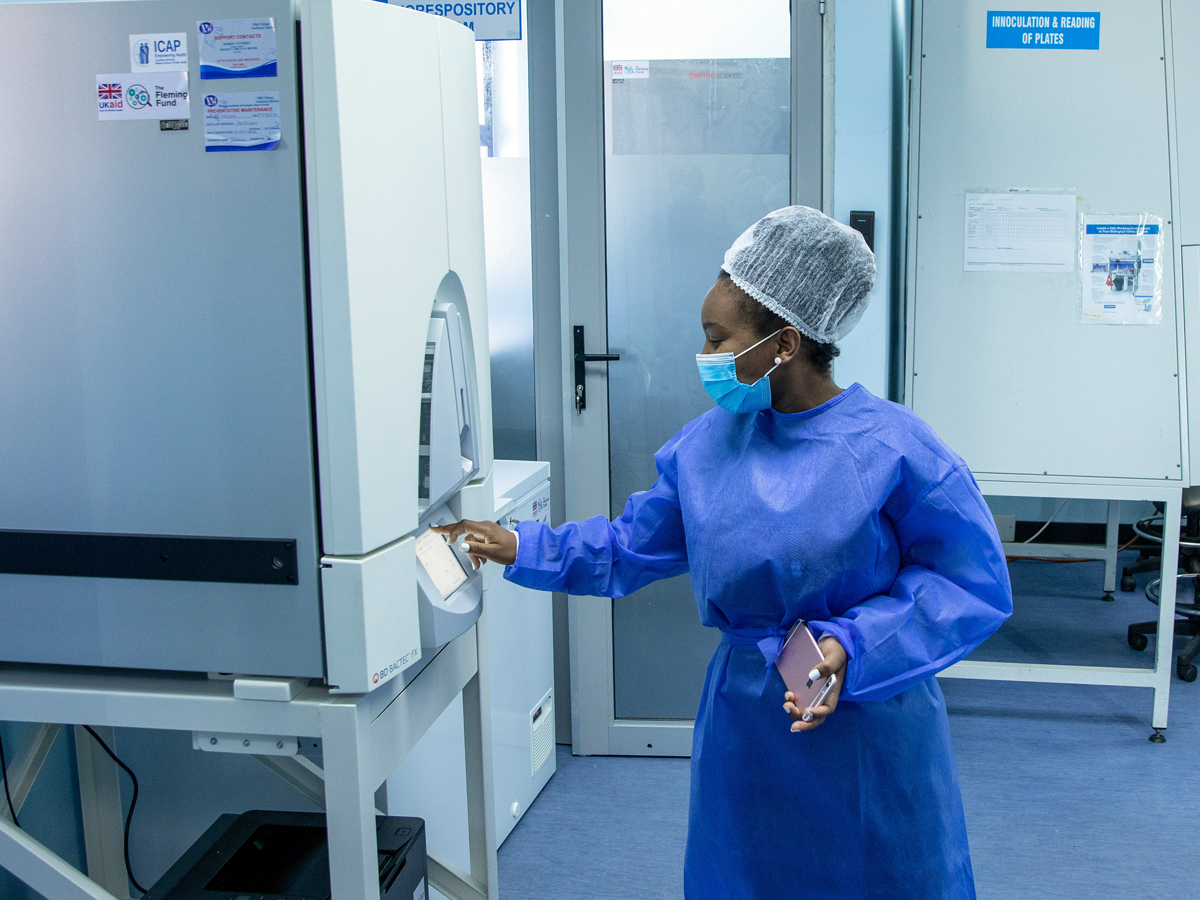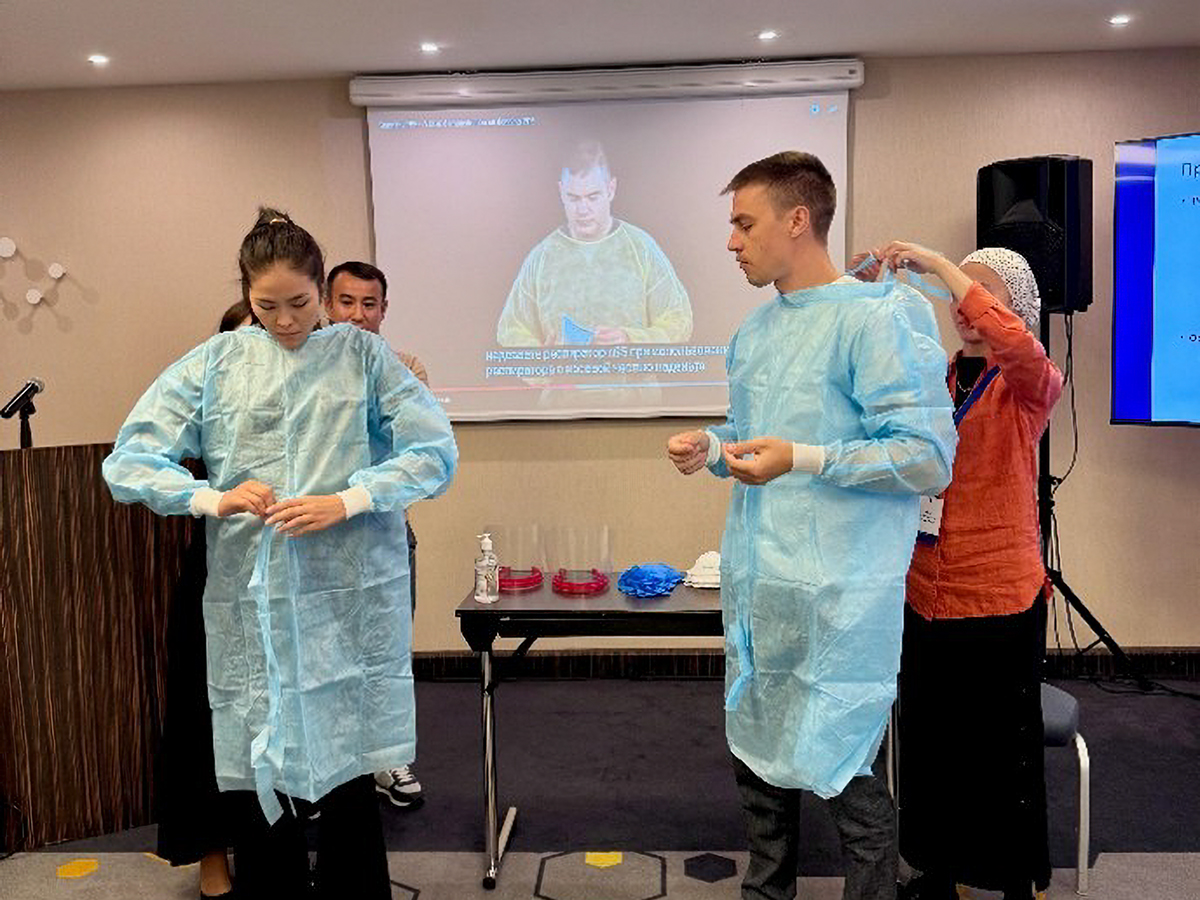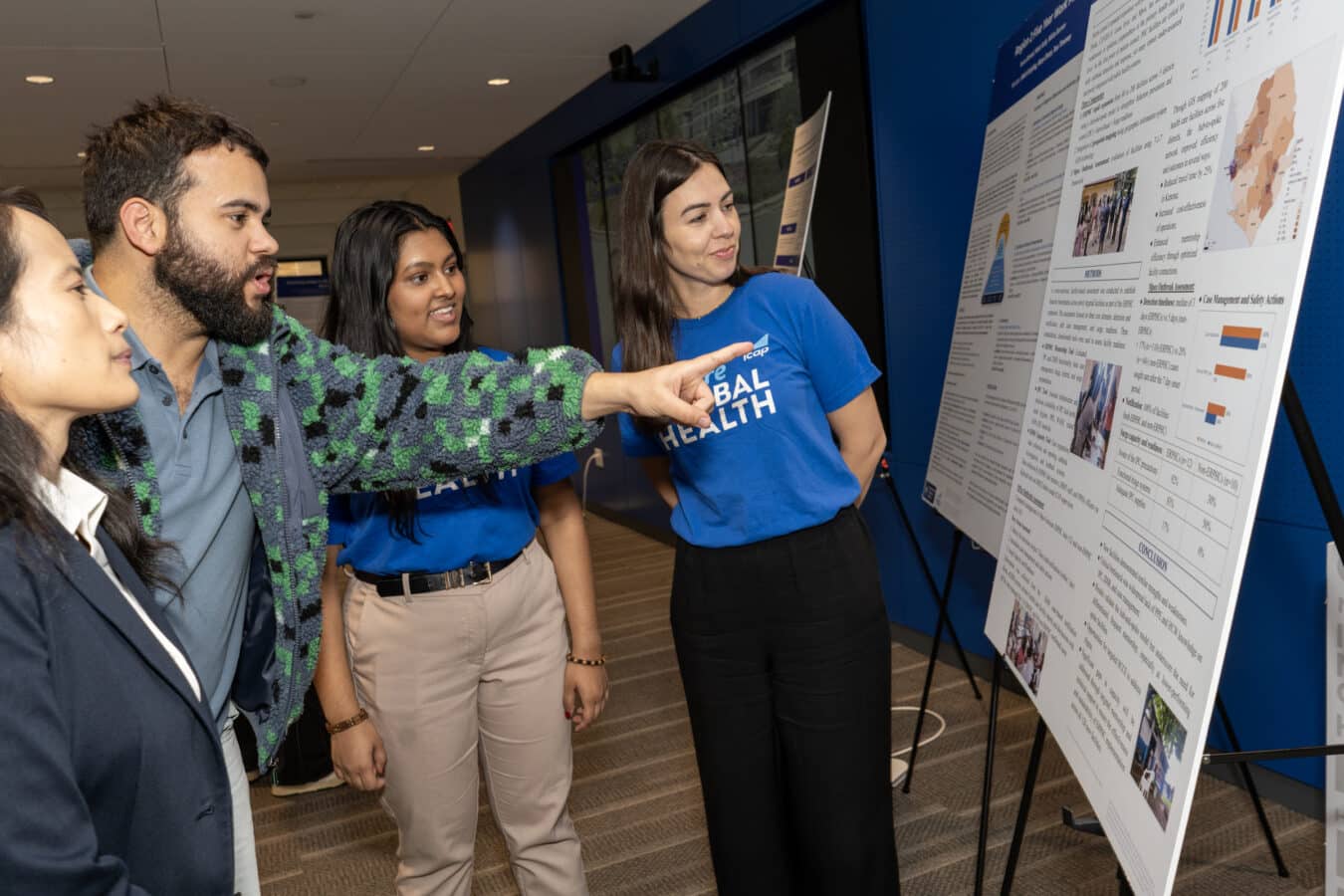The Eastern Europe and South Caucasus (EESC) Intermediate Field Epidemiology Training Program (FETP-I) is a 10-month learning-by-doing applied training program that prepares the public health workforce – and developing leaders – to investigate and respond to major disease outbreaks more effectively. Since 2022, ICAP at Columbia University, in partnership with the U.S. Centers for Disease Control and Prevention (CDC), has supported the training of mid-level public health and animal health specialists from Armenia, Azerbaijan, Moldova, Georgia, and Ukraine. By the end of 2024, 62 specialists and 30 mentors will have been trained through the program.
The FETPs are modeled on the CDC’s successful Epidemic Intelligence Service program but are operated by individual countries and ministries of health. Each FETP is tailored to meet the needs of its country through mentored field projects, addressing shared public health challenges between the Ministries of Health, Agriculture, and Food Safety. Using a unique, applied training approach that focuses on learning by doing, FETP trainees, or residents, spend 75-80 percent of their time maximizing hands-on training in the field and only a limited amount of time in the classroom. FETP is divided into three tiers: 1) FETP-Frontline (FETP-F), 2) FETP-Intermediate (FETP-I), and 3) FETP-Advanced (FETP-A). All three aim to enhance local, district, and national capacities to evaluate and strengthen public health surveillance systems, investigate outbreaks, inform control measures, and conduct field studies addressing public health issues of concern.
Throughout the EESC FETP-I, each resident is assigned a mentor with extensive experience in the public health field. A competitive selection process is used to recruit mentors from the government or private public health sector who provide expert guidance to residents, ensuring the best public health practices are applied in real-world situations. To ensure effective implementation of the FETP-I mentorship model, ICAP has developed a comprehensive guide outlining recruitment, selection, enrollment, and termination of the FETP-I mentors that is currently being used by the program.
While residents gain professional support from mentors, mentors gain immeasurable leadership experience while participating in the FETP-I. Dr. Nona Ephadze, an FETP-I mentor from Georgia, shared, “Participating in FETP-I has had a positive impact on my professional development…it allows me to deepen my knowledge and share new experiences.”
Before the launch of every FETP-I cohort, in-person workshops are provided to mentors for training on effective coaching, supervising, and mentorship skills. The workshops use a “train the trainer” model and offer the opportunity for mentors to learn about adult learning approaches and practice presenting materials. These workshops also allow mentors to debrief on challenges and lessons learned from each cohort to improve the program, identify field projects, and prioritize disease areas. Dr. Ephadze added, “The mentor workshops are very important because they improve our knowledge and skills needed for mentoring…I feel more confident after the mentoring workshops, and as we learn and do different tasks, it helps us imagine ourselves in the shoes of our residents.”
Regular feedback and performance monitoring are essential to ensure mentors provide the necessary support to FETP-I residents and keep them on track throughout the program. ICAP requires FETP-I mentors to submit monthly summary reports highlighting resident activities conducted and noting any challenges related to the program.
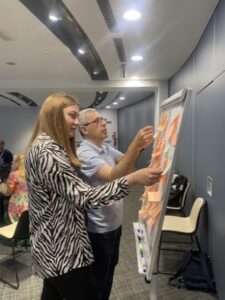
Anastasia Zhabko (Ukraine) and Gennadyi Polozyan (Armenia) during the FETP-I workshop for mentors in Armenia.
“Participating in the FETP-I program as a mentor is an opportunity for me to contribute to the development of future public health leaders,” said Diana Spataru, a mentor from Moldova. “The workshops for mentors have greatly increased my confidence and improved my communication and mentoring skills, and even my teaching skills. I feel a difference in my potential as a mentor. One example is the improvement in my effective feedback skills. Previously, I had difficulty giving constructive criticism, but through training and practice, I have learned how to do so.”
Under the mentors’ leadership, FETP-I residents have investigated priority diseases across the EESC region, including Crimean-Congo Haemorrhagic Fever, Brucellosis, Salmonellosis, rabies, and Leptospirosis. They have conducted multi-country projects on antimicrobial resistance and anthrax and have conducted a health assessment of Ukrainian refugees in Moldova.
Mentors also guide residents in developing abstracts and manuscripts based on their work during the FETP-I. In 2024, under the supervision of mentors from Georgia, Armenia, Moldova, and Ukraine, residents submitted 21 abstracts to various conferences based on their work on AMR, mental health, and Urinary Tract Infections, among other topics.
Anna Deryabina, MD, DrPH, MScIH, regional director of ICAP in Eurasia said, “The FETP resident-mentor relationship is a win-win. Not only do residents gain real-life experience addressing disease outbreaks in the field, but mentors get the opportunity to guide them toward their successes based on their own lived experiences, learning along the way lifelong leadership skills.”
CDC and ICAP are committed to improving mentors’ leadership, management, analytical, and mentorship skills in the EESC countries through these programs to build and sustain leadership in field epidemiology.
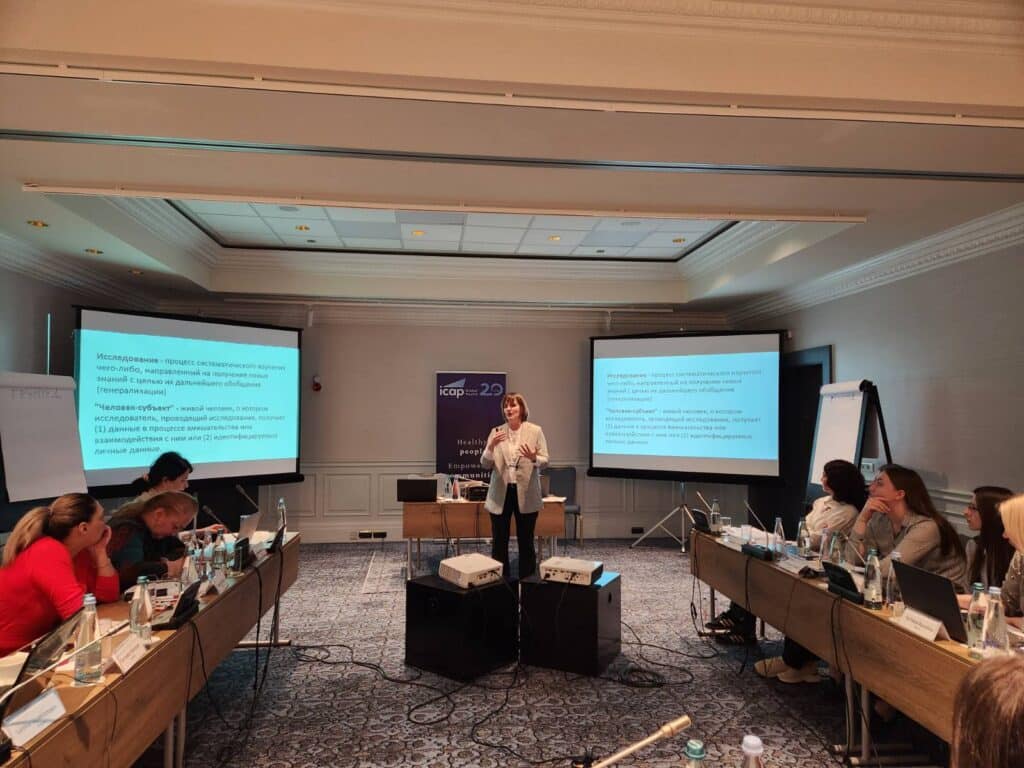
Anna Deryabina presents on human research ethics during the FETP-I workshop for mentors in Georgia.
About ICAP
A major global health organization that has been improving public health in countries around the world for two decades, ICAP works to transform the health of populations through innovation, science, and global collaboration. Based at Columbia Mailman School of Public Health, ICAP has projects in more than 40 countries, working side-by-side with ministries of health and local governmental, non-governmental, academic, and community partners to confront some of the world’s greatest health challenges. Through evidence-informed programs, meaningful research, tailored technical assistance, effective training and education programs, and rigorous surveillance to measure and evaluate the impact of public health interventions, ICAP aims to realize a global vision of healthy people, empowered communities, and thriving societies. Online at icap.columbia.edu



